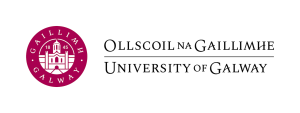Governance Board
Overview of the refreshed Board: role, composition and expertise
Roles and responsibilities
Advise on the future vision and strategic direction of ICHEC, including strategies for funding diversification.
Advise ICHEC on maximizing the exploitation of any opportunities that may arise for its development as a national centre for High-Performance Computing
Provide oversight and advice on performance in relation to the ICHEC Business Plan, including relevant indicators and targets against which performance can be measured.
Assist and advise University of Galway on the progress of ICHEC, ensuring the centre is performing optimally and meeting stakeholder (including funder) requirements/ expectations.
Consider (and advise on) the annual reports of the ICHEC Science Council and Users Council.
Board composition
Board members are selected based on their skills and expertise. A summary of their current roles and relevant experience is provided in the table below, with detailed biographies appended in the subsequent section.
Skillsets: Governance (of State bodies | corporate), finance, HR, strategy, EU strategy (science & technology), EuroHPC JU strategy, national HPC service, Irish higher education, technology transfer and commercialisation, service provision.
Members
Chairperson: Martin Hynes

Martin completed his professional career as President of the European Science Foundation (ESF, 2016 to 2020), Strasbourg. Prior to this he served as Chief Executive of the ESF from 2012-2016. He was formerly Director of The Irish Research Council for Science, Engineering and Technology (IRCSET) and in this role he implemented a number of innovative national funding schemes with a special focus on the formation support for early career researchers. His experience lies in research policy and he has an excellent record of formulating policy decisions and assuring good governance practices in implementation.
He has contributed to a number of voluntary Boards, including the RDS Foundation Board, the Irish University Quality Board (precursor to Quality and Qualifications Ireland) and to the Digital Enterprise Research Institute.
A Chartered Engineer and Fellow of Engineers Ireland, Martin is passionate about sustainability and ESG. He contributes to a number of international evaluation programmes on these issues. His contributions to international collaboration have been recognised by the Chevalier des Palmes Académiques and by the President of Ireland Champions of Research awards.
Prof. Gabrielle Allen
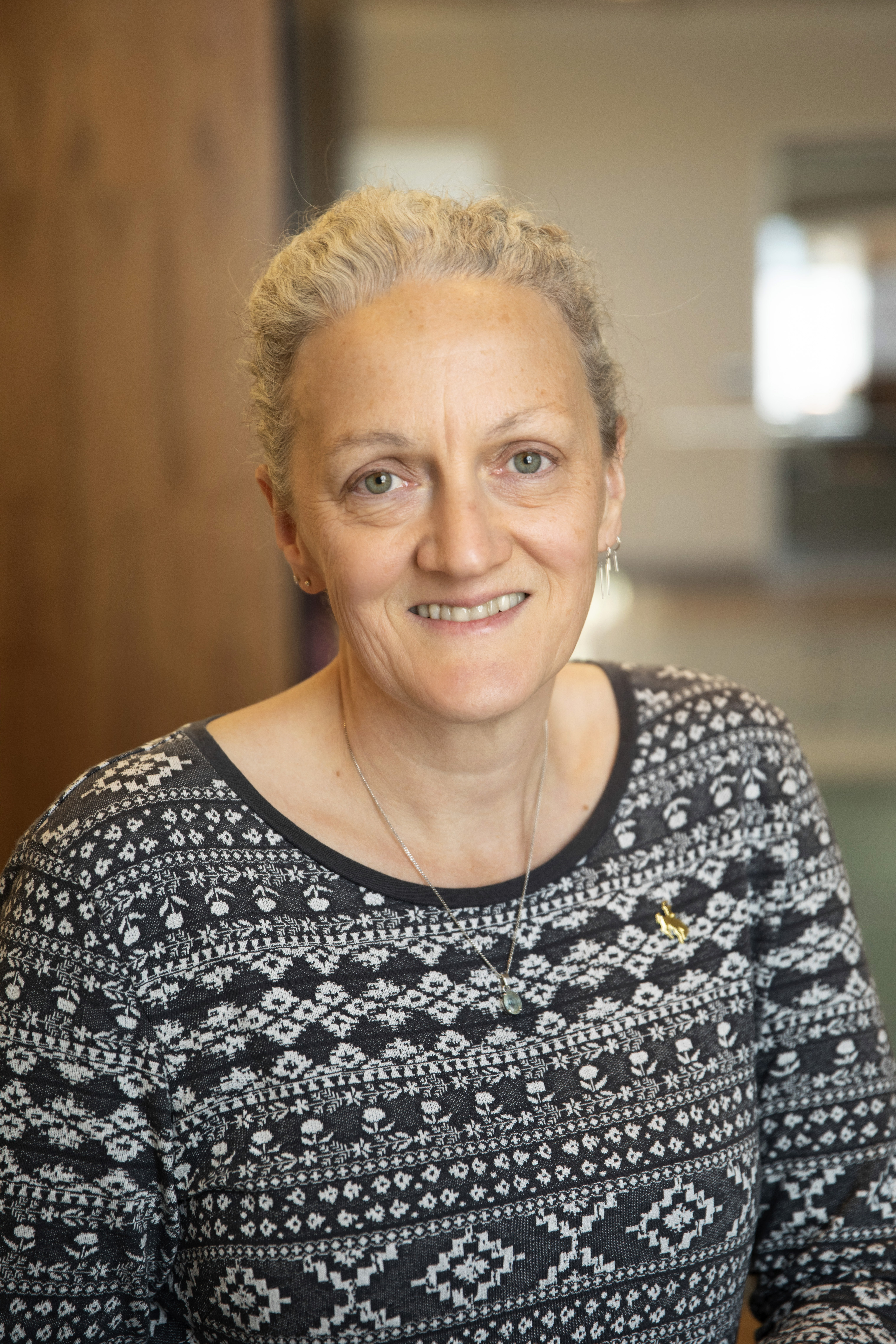
Gabrielle Allen is the Founding Director of the School of Computing at the University of Wyoming. She has a B.S. in Mathematics from Nottingham University, completed Part III of the Math Tripos at Cambridge University, and received a PhD in Physics from Cardiff University. She has held positions at Cardiff University, the Max Planck Institute for Gravitational Physics, Louisiana State University, Skolkovo Institute of Science and Technology, the University of Illinois Urbana-Champaign and the US National Science Foundation.
Her research work has focused on the development and application of scientific community software, including the Cactus Framework, Einstein Toolkit, and Grid Application Toolkit. While her work has focused on the modeling of black holes, neutron stars, and gravitational waves, she has worked in diverse disciplinary fields including computer science, education, petroleum engineering, computational chemistry, coastal modeling, and computational fluid dynamics. Dr. Allen was awarded the Gordon Bell Prize in Supercomputing in 2001, the IEEE International Scalable Computing Challenge award in 2009, and the High-Performance Bandwidth Challenge award in 2002. In 2017 she was elected a Fellow of the American Physical Society. In 2024 she became a council member of the Computing Research Association’s Computing Community Consortium.
Dorothy Creaven

An Electronic Engineering graduate from the University of Galway, Dorothy has over 20 years experience in enterprise software engineering, tech startups, management, and senior leadership for SMEs and multinationals alike. Dorothy specialises in scaling technology companies from rapid-growth greenfield sites to global software R&D organisations.
Her corporate background also includes multinational companies such as Alphabet (Google) Abbott Vascular, as well as EPAM Systems, a US publicly-listed Forbes Fast 25 Tech company. Listed as one of Ireland's top 25 women in engineering, Dorothy also co-founded her own multi-award winning technology startup, an enterprise marketing automation company, Element Wave, successfully operating globally from Galway between 2010 and 2017. More recently, Dorothy was Vice President, Managing Director and Site Lead at Rent the Runway’s European headquarters in Galway from 2019 to 2024.
Dorothy is also a member of the Board of Directors of Croí Heart and Stroke, a non-profit organisation with a mission to conquer heart disease and stroke, with a special focus on the West of Ireland.She also acts as a startup mentor and advisor for early stage entrepreneurs.
Prof. Jean-Christophe (“JC”) Desplat
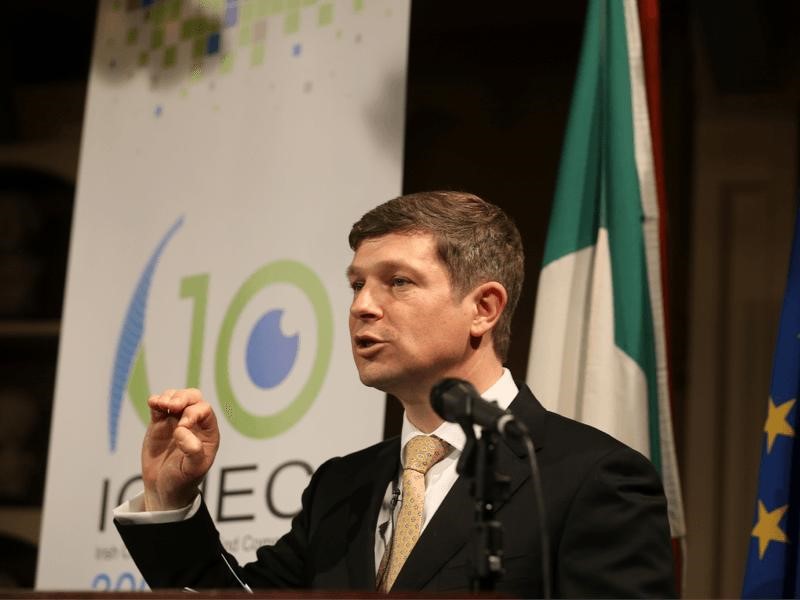
JC Desplat is a technology expert with over 30 years’ experience in high-performance computing (HPC). His particular interest lies in the innovative use of HPC in emerging domains, with a particular interest in Environmental Digital Twins and coupled Quantum-HPC platforms. He has served as advisor to a number of committees in Ireland and abroad, including the strategic advisory team of the UK Engineering and Physical Sciences Research Council, the ICT sub-committee of the Irish Medical Council, the Climate Change Research Co-ordination Committee of the Irish Environmental Protection Agency as well as the scientific board and the infrastructure advisory board of the IT for Innovations national centre in the Czech Republic. JC is also the mandated national expert for Ireland on the EuroHPC Joint Undertaking Governing Board.
His professional career started in 1995 at the Edinburgh Parallel Computing Centre (EPCC) in the UK, one of the world’s leading HPC Centres. He then moved to Ireland in 2005 to help set up Ireland’s first national HPC centre, the Irish Centre for High-End Computing (ICHEC), where he has been director since 2012.
He is honorary professor of computational science at the Dublin Institute for Advanced Studies and adjunct professor in the School of Physics at the University of Galway and was awarded the status of Chevalier de l'Ordre des Palmes Académiques by the French Prime Minister in October 2016.
Prof. Walter Gear
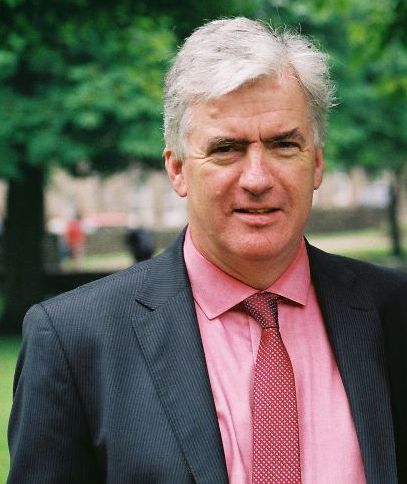
Executive Dean, College of Science and Engineering at the University of Galway since April 2019.
Prof Gear oversaw the merger of the previously separate colleges of Science and Engineering and Informatics into The College of Science and Engineering, including restructuring of the schools within the college and has set a strong vision to support ambition in education and in research and innovation, to provide innovative and competitive programmes of research, and to drive excellence in research and education. The College of Science and Engineering do this by attracting and developing talented researchers, nurturing fundamental and translational research and delivering intellectual capacity.
Prof. Gear is an astrophysicist who has worked on ground and space based experiments in the far-infrared to millimetre wavelength range. His research is currently concerned with star formation in galaxies, and has previously worked on Active Galactic Nuclei and Cosmology, including the Cosmic Microwave Background radiation, in which field he co-led an experiment based at the South Pole, for and has published over 150 refereed papers with over 27000 citations, including 4 papers with over 1000 citations. Before coming to Galway Professor Gear was at Cardiff University for 20 years where he created the Astronomy Instrumentation group, and subsequently spent eight years as Head of the School of Physics and Astronomy. Prior to that he was at University College London, and the Royal Observatory Edinburgh where he led the pioneering SCUBA camera at James Clerk Maxwell telescope (JCMT).
Prof Gear has also taken many roles in peer review and advisory committees in the UK and Europe and is currently a member of the International Oversight Board for the JCMT. In 2012, Gear was elected a Fellow of the Learned Society of Wales.
He earned his BSc and PhD at Queen Mary, University of London, where he studied Physics and Astrophysics.”
Dr Josep M. Martorell

Josep Maria Martorell has a degree in Physics from the University of Barcelona (UB) and a Ph.D. in Computer Science from Ramon Llull University (URL). He has developed his career in the field of academic and scientific management, both in university and government institutions. He was director-general of research of the Government of Catalonia for five years. Since April 2016 he is the associate director of the BSC. Josep Maria has also taken a few programs on business and executive training in ESADE (VV-2004) and IESE (PDD-2009) and has ample experience as a Business Angel and mentor of a few technological start-ups created in Barcelona. He is also a member of the Board of Trustees of the Barcelona Institute of Political Economy and Governance, EADA Business School Foundation, and BarcelonaBeta Brain Research Center.
Dr Eucharia Meehan
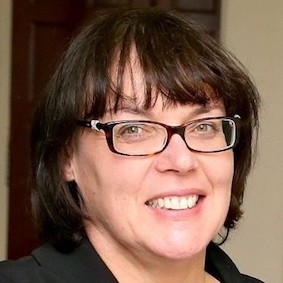
Dr Eucharia Meehan MRIA is currently the Chief Executive Officer & Registrar of the Dublin Institute for Advanced Studies (DIAS). DIAS, one of a family of international independent research institutes, is the only such advanced studies institute in Ireland. Since its inception it has focused on fundamental frontier and discovery research in designated disciplines - #DIASdiscovers. Prior to joining DIAS (2017), Eucharia was the inaugural Director of the Irish Research Council (IRC), the latter being established in 2012 through the merger of two former research funding councils. Prior to that she was Head of Research and Innovation (policy and investment) at the Higher Education Authority Ireland. This latter role encompassed Director of the Programme for Research in Third Level Institutions (PRTLI – an investment of €1.2bn in strategic research infrastructure and capacity). Prior to 2002, she was Head of Programme Management for Elan Biotechnology Research (EBR).
Elected to the Royal Irish Academy in 2017, Eucharia currently serves on the RIA Council and is a member of the RIA Audit & Risk Committee. She co-chaired the RIA Higher Education Futures (All-Island) Research and Innovation Committee in 2022.
In addition to being on the board of ICHEC, she is currently a board member of LERO (the SFI Research Centre for Software) and iCRAG (the SFI Research Centre in Applied Geosciences). At European level she is a member of the Scientific Advisory Board to Biocenter Finland and was previously an elected board member of both ScienceEurope (the pan-european association for research funding and research performing organisations), and the European Strategy Forum for Research Infrastructures (ESFRI). An acknowledged leader in advancing gender equality and diversity policies, she was designated ScienceEurope’s first Gender and Diversity Champion (2017). She is a Trustee of the University of Galway Student’s Union.
James M. McGlennon
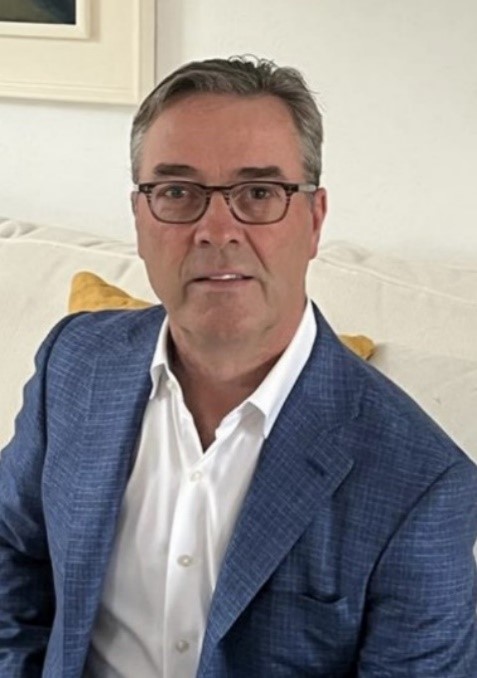
James McGlennon has more than 30 years’ experience leading global technology organisations across Insurance, Telecommunications and Banking industries. While at Liberty Mutual he drove the company’s industry-leading digital transformation, scaling global technology and resources to provide innovative solutions for customers and employees. He established the technology organisation as a pillar of business strategy as the company more than doubled to $50B in size. Leading a team of nearly 15,000 employees, contractors, and consultants around the world he built a culture of continual learning, smart risk-taking, and agility.
Under James’s leadership, Liberty Mutual Technology earned a spot on the 2020, 2021 and 2022 Computerworld “Best Places to work in IT” list. James was named to the Forbes CIO Next 2021 list, received the 2019 Irish American Magazine “Business 100 Award” and earned the CIO of the Year® ORBIE Leadership Award® from BostonCIO in 2018. He was also finalist for the MIT Sloan CIO Leadership Award in 2022.
James has global experience with a successful track record in managing technology supply chains and support models. James holds bachelor and master’s degrees in engineering from the University of Galway, Ireland and has completed Harvard Business School’s Advanced Management Program.
Rui Oliveira

Rui Oliveira is an associate professor with habilitation at the Informatics Department of the University of Minho, where he teaches Fault-Tolerant Distributed Systems.
He is director of the Minho Advanced Computing Centre, co-director of the UT Austin Portugal Program, and board member of the EuroHPC JU. He was a member of the INESC TEC Board of Directors (2012-2024) and director of the High-Assurance Software Laboratory (University of Minho and INESC TEC, 2010-2015).
Oliveira received his PhD in 2000 from the École Polytechnique Fédérale de Lausanne. His main research contributions have been in the fields of dependable and large-scale distributed systems, as well as the conception, development, and assessment of dependable and scalable database systems. Rui Oliveira has been involved in several research and innovation projects, coordinating the FP6 GORDA, ESCADA, StrongRep, Stratus, H2020 SafeCloud, and STAYWAY COVID projects. He has published over 100 research papers on fault-tolerant and large-scale distributed systems. He co-founded three start-up companies.
Oliveira has served on the program committee of several highly reputed conferences. He has chaired the IFIP DAIS and IEEE SRDS technical program committees and was general chair for both IEEE SRDS and ACM Eurosys conferences. He chairs the IEEE SRDS Steering Committee and has served on the Steering Committees of ACM Eurosys, ACM/IFIP/USENIX Middleware and IFIP DAIS conferences, the Atlantic International Research Centre (AIR Centre), and the Collaborations to Enable Transnational Cyberinfrastructure Applications (CENTRA).
Professor Mark Parsons
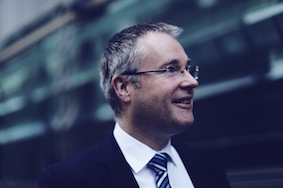
Director of EPCC and holds a Personal Chair in High Performance Computing. He is also the Associate Dean for e-Research at the University of Edinburgh. He joined EPCC in 1994 as a software developer working on several industrial contracts following a PhD in Particle Physics undertaken on the LEP accelerator at CERN in Geneva. In 1997 he became the Centre’s Commercial Manager and subsequently its Commercial Director. His career has focused on the application of modelling and simulation enabled by HPC to solve real-world problems faced by both the scientific research and business communities.
Laura Schulz
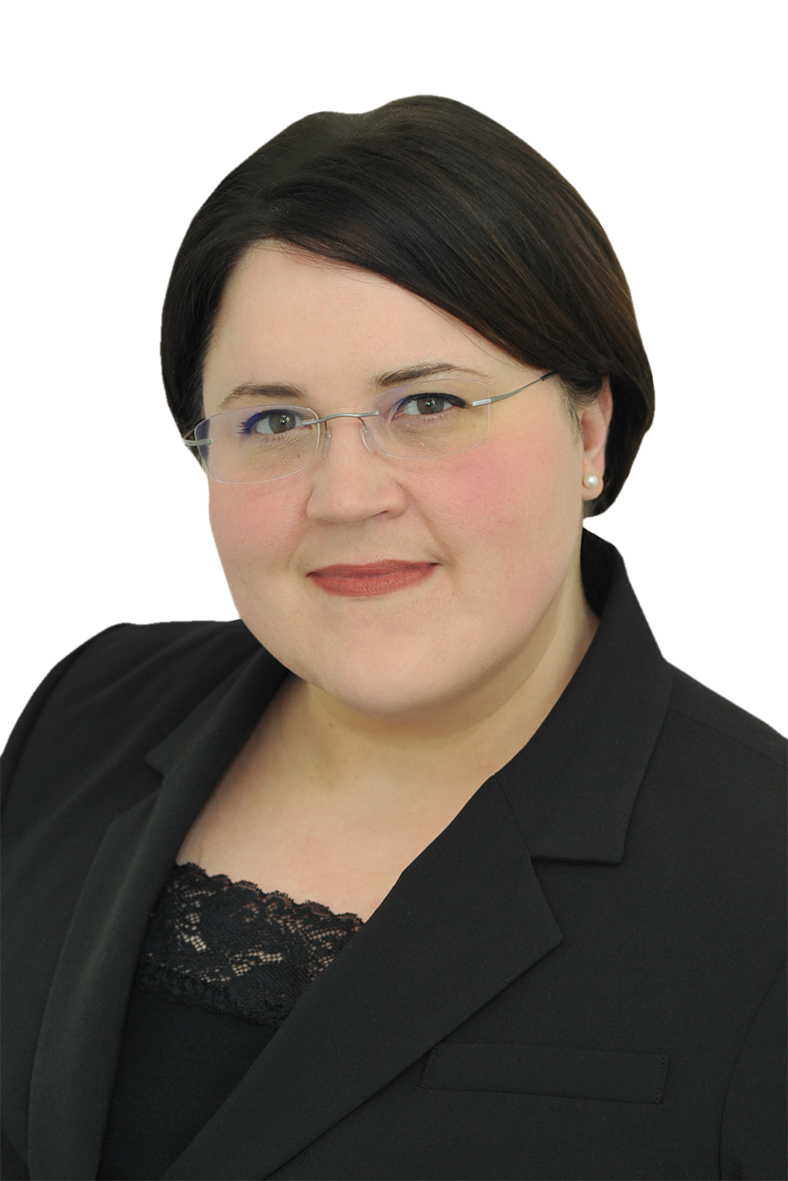
Project Lead for Innovation @ Argonne National Laboratory | Strategic Planning, Program Development, HPC, AI, Quantum
I lead innovation initiatives in the field of supercomputing including HPC, AI and most recently, quantum computing. With a strong, broad background and education, I've demonstrated multiple times the ability to develop and execute first-of-kind initiatives that resonate with stakeholders on a spectrum from the political to technical to the public, and to navigate those big-picture strategic concepts to nuts-and-bolts execution and results delivery.I bring an energetic, yet structured approach and a servant leadership-based philosophy to an organization. I ensure my teams have development opportunities to bolster their abilities as transformative leaders and I create and maintain intellectually enriching and exciting environments where they can contribute their creativity and expertise, excel in their careers, and deliver the very best computing capabilities.
Former Head of Department for Quantum Computing & technologies at the Leibniz Supercomputing Centre (LRZ) - 2022 to 2025
Head of STrategic Development and Partnerships at LRZ - 2019 - 2022
and Industrial Partnership Manager - 2017 - 2019
Marketing Communications Director, HPC Innovation Centre, Lawrence Livermore National Laboratory, 2011 - 2016


